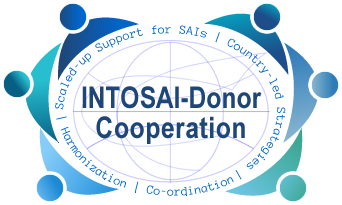IDI E-learning Course on Risk Based Approach to Financial Audit 2012-2013
SAIs across the world conduct financial audits as part of their mandate. The ISSAIs for financial audit require the auditors to adopt a Risk-based Approach to Financial Audit (RBAFA) by conducting risk assessment of financial misstatements based on an assessment of entity and its environment including internal controls. Increasingly, SAIs are adopting a risk-based approach in financial audits to minimize the risk of audit opinion going wrong. The expanding role of public sector auditors requires that the audit techniques and methodology are continuously upgraded to ensure a high quality audit. The IDI’s E-Course on Risk-based Approach to Financial Audit (E-RBAFA) is based on the relevant ISSAIs (level 4) for financial audit, and aims to enhance the professional staff capacity of financial auditors in the public sector. The course is designed as a step by step guide for implementing the standards in conducting risk-based audit. It uses the “learning by doing approach”, where a case study and several templates provide hands- on practice to the participants.
The course was run twice in 2012 due to a persistent and substantial demand from the SAIs across English-speaking INTOSAI regions. In 2013, the contents of the E-course were updated and the course was converted into a certification course. The 3rd round of the E-RBAFA was conducted in September-October 2013, with an additional feature of group work done by SAI teams.
Expected outcomes:1.Number of participants who use risk-based approach for financial audits after the completion of e-course
2.Increased SAI coverage
Lessons learnt:
E-Learning is a good platform to reach out to a number of SAIs and create critical mass of professional staff capacity.
A rigorous assessment process and well designed online activities help in keeping up the participant motivation and retention.
Being online, these courses are highly cost sustainable as travel and accommodation costs are saved.
E-courses are environmentally sustainable as they help in saving substantial carbon footprints.
A need to link the professional staff capacity developed through e-courses to organisational capacity development in the SAI.
A need to put
SAIs connected to this project
- Afghanistan
- Antigua and Barbuda
- Azerbaijan
- Bahamas
- Bahrain
- Bangladesh
- Belarus
- Bhutan
- Botswana
- Bulgaria
- Cambodia
- China
- Cyprus
- Czech Republic
- Eritrea
- Eswatini
- Fiji
- Guyana
- Iceland
- India
- Ireland
- Jamaica
- Kazakhstan
- Kiribati
- Laos
- Latvia
- Lesotho
- Lithuania
- Malawi
- Maldives
- Mauritius
- Mongolia
- Montserrat
- Myanmar
- New Caledonia
- Pakistan
- Philippines
- Saudi Arabia
- Seychelles
- Singapore
- Slovakia
- St. Lucia
- St. Vincent and Grenadines
- Suriname
- Tanzania
- Trinidad and Tobago
- Turkey
- United Arab Emirates
- Vanuatu
- Zambia
- Zimbabwe
